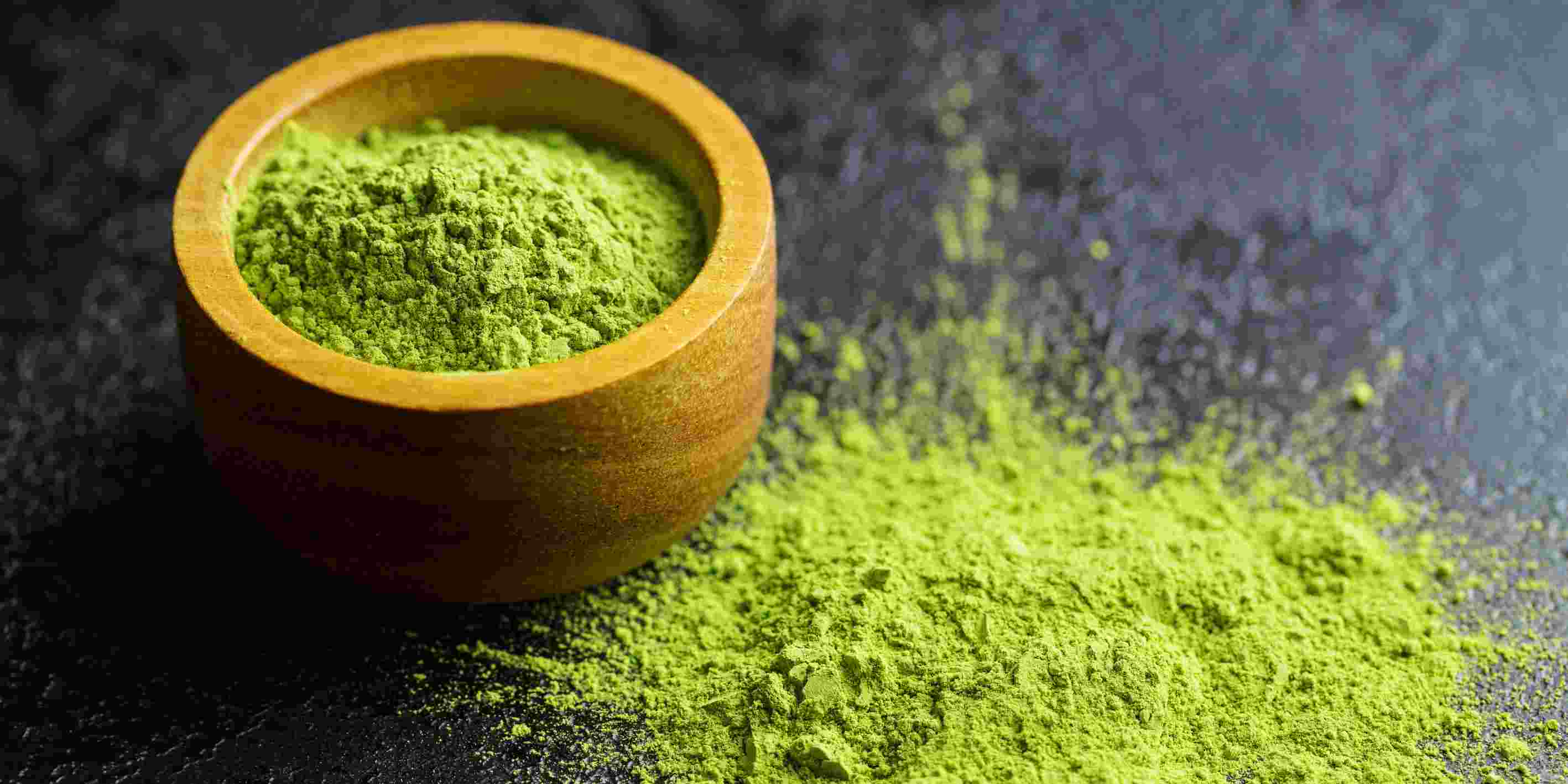Internet Asks: "Ryze Matcha Caffeine Content"
Ryze Matcha has been gaining attention as a healthier alternative to traditional caffeinated beverages. Combining the benefits of matcha green tea with medicinal mushrooms, Ryze Matcha offers a unique blend that promises sustained energy and various health benefits. But how much caffeine does it actually contain?
sponsored links
What is Ryze Matcha?
Ryze Matcha is a blend of organic matcha green tea and medicinal mushrooms. The carefully selected ingredients in Ryze Matcha include:
-
1. RYZE Organic Mushroom Matcha Blend:
- - Ceremonial Grade Japanese Matcha: High-quality matcha powder that provides a rich flavor and a natural source of caffeine.
- - Cordyceps: Known for enhancing energy levels and athletic performance.
- - Lion's Mane: Believed to support brain health and cognitive function.
- - Reishi: Often used to reduce stress and improve sleep quality.
- - Shiitake: Boosts the immune system and supports cardiovascular health.
- - Turkey Tail: Known for its immune-boosting properties.
- - King Trumpet: Contains antioxidants and supports heart health.
- 2. Organic Coconut Milk Powder: Adds a creamy texture and healthy fats.
- 3. Organic MCT Oil Powder: Known for its ability to boost energy and support brain function.
- 4. Organic Blue Spirulina: Provides additional nutrients and antioxidants.
- 5. Organic Himalayan Pink Salt: Enhances flavor and provides trace minerals.
Caffeine Content in Ryze Matcha
A typical serving of Ryze Matcha contains:
- 30 mg of Caffeine per Serving: This is comparable to the caffeine content found in a standard serving of green tea but offers a smoother and more sustained energy boost.
Caffeine Comparison with Other Beverages
- - Standard Cup of Coffee: Approximately 95 mg of caffeine per 8-ounce serving.
- - Black Tea: About 47 mg of caffeine per 8-ounce serving.
- - Green Tea: Around 28 mg of caffeine per 8-ounce serving.
- - Cola: Roughly 34 mg of caffeine per 12-ounce can.
- - Energy Drinks: Approximately 80-150 mg of caffeine per 8-ounce serving.
sponsored links
Recommended Daily Intake of Caffeine
The recommended daily intake of caffeine varies depending on age, health, and sensitivity. However, general guidelines suggest:
- - Adults: Up to 400 mg of caffeine per day. This is roughly equivalent to four 8-ounce cups of brewed coffee.
- - Pregnant Women: Up to 200 mg of caffeine per day. Excessive caffeine intake during pregnancy can be associated with adverse pregnancy outcomes.
- - Adolescents: Should limit caffeine intake to less than 100 mg per day. High caffeine intake in teenagers can interfere with sleep and may lead to increased anxiety.
Benefits of Ryze Matcha's Caffeine Content
- 1. Smooth Energy Boost: The combination of matcha and mushrooms provides a steady release of energy without the typical caffeine crash.
- 2. Enhanced Focus: Matcha contains L-theanine, an amino acid that promotes relaxation and enhances focus, balancing out the stimulating effects of caffeine.
- 3. Improved Metabolism: Matcha is known to boost metabolism and support weight management.
Conclusion
Ryze Mushroom Coffee contains about 48 mg of caffeine per serving, offering a lower-caffeine alternative to regular coffee. This makes it an excellent choice for those looking to reduce their caffeine intake while still enjoying a flavorful and energizing drink.
Disclaimer: This article is for informational purposes only and should not be considered medical advice. Consult with a healthcare professional for any dietary concerns.
sponsored links
References
1. Ryze. https://www.ryzesuperfoods.com.
2. Mayo Clinic. Nutrition and healthy eating. https://www.mayoclinic.org/healthy-lifestyle/nutrition-and-healthy-eating/in-depth/caffeine/art-20049372
3. Healthline: How Much Caffeine Does Tea Have Compared with Coffee? https://www.healthline.com/nutrition/caffeine-in-tea-vs-coffee#:~:text=An%20average%20cup%20(237%20ml,12%2C%2013%20%2C%2014)
4. Harvard Health Publishing. Mushroom coffee: Worth a taste?. >https://www.health.harvard.edu/nutrition/mushroom-coffee-worth-a-taste#:~:text=These%20coffee%20brands%20claim%20that,metabolism%20and%20promoting%20fat%20burning.
5. FDA. How Much Caffeine is Too Much?. https://www.fda.gov/consumers/consumer-updates/spilling-beans-how-much-caffeine-too-much
People are also reading...
Does Sprite Have Caffeine?
Ryze Caffeine Content
Do Starbucks Refreshers Have Caffeine?
How Much Caffeine In Iced Coffee?
How Much Caffeine In A Monster?
Celsius Caffeine Content?
Does Kahlua Have Caffeine?
How Much Sugar In Beer?
Does Fanta Orange Have Caffeine?
Ready to level-up?
Create meal plans 10x faster, follow up with your clients through our mobile app, and never struggle with meal planning or recipe management again.
